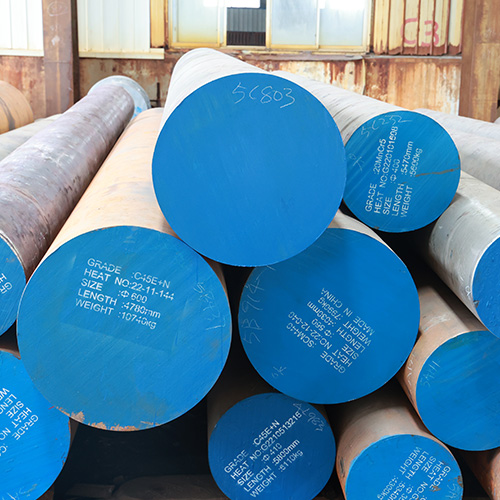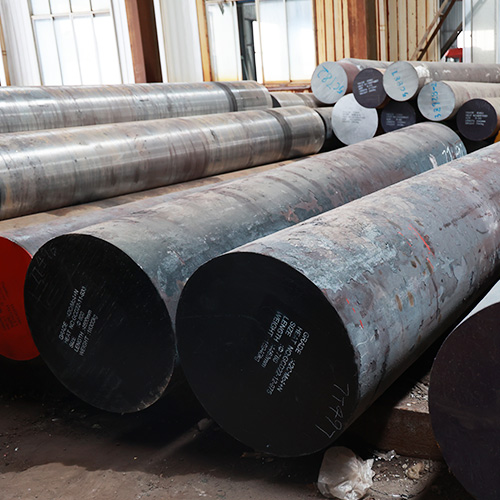Introduction

Hot rolled round bars are indispensable in modern construction projects due to their superior mechanical properties, versatility, and cost-effectiveness. This blog explores in detail the numerous advantages that hot rolled round bars offer, focusing on their applications, properties, environmental benefits, and cost efficiency.
Properties of Hot Rolled Round Bars
Hot rolled round bars are manufactured through a process that involves heating billets above their recrystallization temperature and then passing them through rollers to achieve the desired shape and size. This hot rolling process enhances the bars’ mechanical properties, including high tensile strength, excellent ductility, and toughness. These properties make hot rolled round bars ideal for applications requiring strong structural integrity and resistance to bending and deformation.
Applications in Construction
Hot rolled round bars find extensive use in construction for various purposes:
- Reinforcement: In reinforced concrete structures, hot rolled round bars are used to enhance the tensile strength of concrete elements such as beams, columns, and slabs. Their ability to withstand high loads makes them crucial in ensuring the structural stability and durability of buildings and infrastructure.
- Fabrication: These round bars are versatile and can be easily machined into different shapes and sizes to meet specific construction requirements. They are commonly used in fabricating structural components like trusses, frames, and supports.
- Machining: Hot rolled round bars are preferred for machining applications where precision and consistency in dimensions are essential. They can be drilled, cut, and welded without compromising their mechanical properties, making them suitable for a wide range of construction projects.
Environmental Benefits
Choosing hot rolled round bars over alternative materials can have positive environmental implications. The hot rolling process typically consumes less energy and emits fewer greenhouse gases compared to cold rolling or other manufacturing methods. Additionally, hot rolled round bars are highly recyclable at the end of their service life, contributing to sustainability efforts in the construction industry.
Cost Effectiveness
Hot rolled round bars offer significant cost advantages throughout their lifecycle. The initial manufacturing process is efficient and cost-effective, resulting in competitively priced products. Moreover, their durability and minimal maintenance requirements reduce long-term expenses associated with replacements and repairs, making them a preferred choice for builders and contractors aiming to optimize project budgets.
Comparison of Hot Rolled vs. Cold Rolled Round Bars

| Property | Hot Rolled Round Bars | Cold Rolled Round Bars |
|---|---|---|
| Strength | High tensile strength | Lower tensile strength |
| Surface Finish | Slightly rough | Smooth |
| Manufacturing Cost | Lower | Higher |
| Applications | Structural components, reinforcement | Precision components, shafts |
| Environmental Impact | Lower greenhouse gas emissions | Higher energy consumption |
Conclusion
In conclusion, hot rolled round bars play a crucial role in modern construction, offering superior mechanical properties, versatility in applications, environmental sustainability, and cost efficiency. Builders and engineers can leverage these advantages to enhance the structural integrity, durability, and overall performance of their projects while meeting budgetary and environmental goals.
FAQ
Q: What are hot rolled round bars made of?
A: Hot rolled round bars are typically made from carbon steel or alloy steel, chosen for their strength and durability in construction applications.
Q: How are hot rolled round bars different from cold rolled ones?
A: Hot rolled round bars are processed at high temperatures, which improves their mechanical properties and makes them suitable for structural applications. In contrast, cold rolled round bars are processed at lower temperatures to achieve a smoother surface finish and tighter dimensional tolerances.
Q: What are the main advantages of using hot rolled round bars in construction?
A: The main advantages include high tensile strength, excellent ductility, cost-effectiveness, and lower environmental impact compared to alternative materials. These properties make hot rolled round bars ideal for reinforcing concrete structures, fabricating structural components, and reducing overall construction costs.
